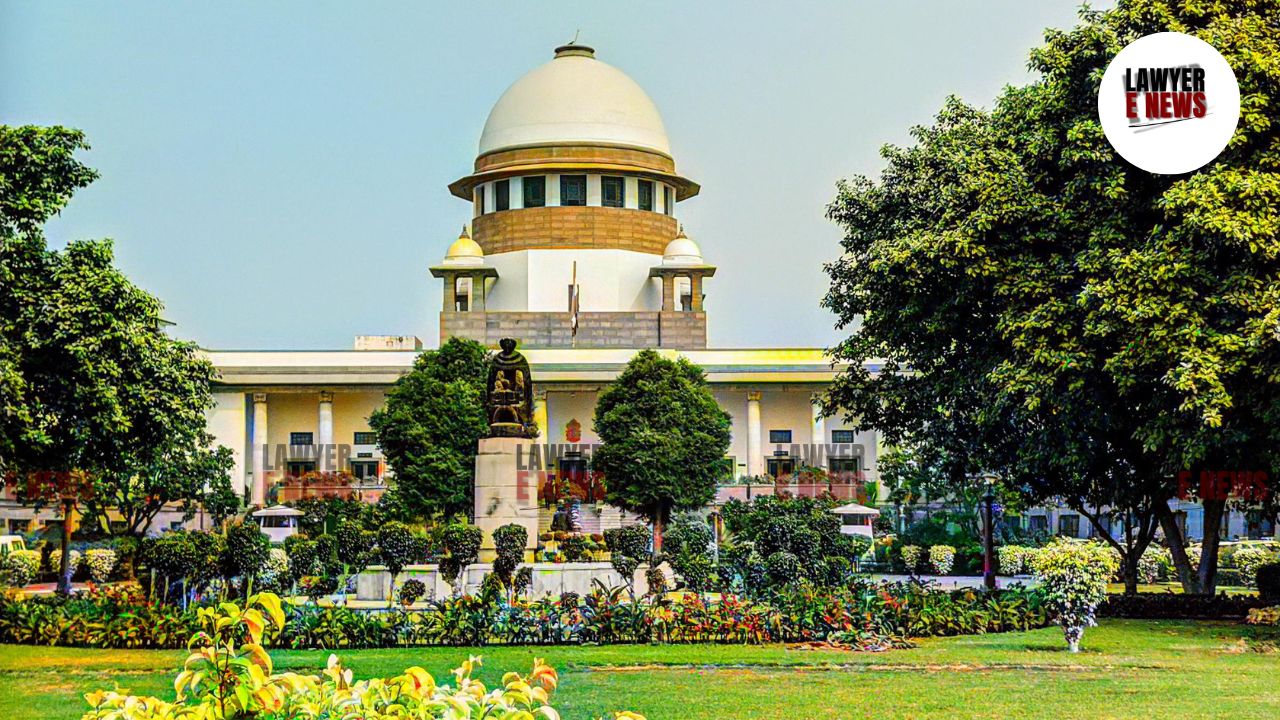-
by sayum
16 February 2026 6:35 AM



Supreme Court Holds That Child’s Welfare is Best Served with the Natural Guardian, Maternal Grandparents Given Visitation Rights. In a landmark ruling Supreme Court of India overturned an order denying custody of a minor child to his father. The case arose when the father, after his wife’s demise, sought custody of his son who had been living with his maternal grandparents. The Allahabad High Court had refused custody, citing the child’s comfort with his grandparents and the father’s remarriage, granting only visitation rights.
The Supreme Court, in a strong affirmation of parental rights and the welfare principle, ruled that “a father’s remarriage cannot override his legal right as a natural guardian”, emphasizing that unless there are compelling reasons against him, a natural guardian has the superior claim to custody. The Court allowed custody to the father but devised a gradual transition plan, ensuring that the child’s educational stability and emotional well-being were safeguarded.
The appellant, Vivek Kumar Chaturvedi, an Administrative Service Officer, lost his wife in 2021. His minor son, who had been living with his maternal grandparents since then, was enrolled in a school near their home. Seeking custody, the father approached the High Court in a Habeas Corpus petition, arguing that as the natural guardian under the Guardian and Wards Act, 1890, he had a legal right to raise his child.
The maternal grandparents opposed the custody claim, citing the child's emotional attachment to them and the stability of his current environment. They further argued that the father’s remarriage could create emotional difficulties for the child.
The Allahabad High Court sided with the maternal grandparents, reasoning that since the child was comfortable with them and the father had remarried, it was in the child’s best interest to continue living with them. The father was granted visitation rights only once a month, under police supervision.
Addressing the maintainability of the Habeas Corpus petition, the Court referred to its ruling in Tejaswini Gaud & Ors. v. Shekhar Jagdish Prasad Tewari & Ors., (2019) 7 SCC 42, stating: “A writ of Habeas Corpus is maintainable in custody disputes when the child is in illegal or unauthorised custody. In the absence of a competing legal claim by the maternal grandparents, the father has the superior right.”
On the issue of the father’s remarriage, the Court strongly rejected the argument that remarriage could be a valid ground for denying custody, stating: “The father’s remarriage does not, in any manner, dilute his status as the natural guardian. There is no presumption in law that a stepmother would not care for the child, and unless there is evidence to the contrary, courts must not make assumptions detrimental to parental rights.”
Examining the child’s best interests, the Court noted that there were no allegations of abuse, neglect, or incapacity against the father. The father had made extensive arrangements for his son’s future, including:
A property transfer in the child’s name by the paternal grandfather.
A ₹10 lakh fixed deposit for the child’s welfare.
A ₹25 lakh life insurance policy with the child as the beneficiary.
Emphasizing that the child had lived with both parents for ten years before the mother’s death, the Court observed: “The child’s welfare is not solely determined by comfort in the present environment but also by his future prospects and emotional security. A father, as a natural guardian, has both the right and the responsibility to raise his child unless there are extraordinary circumstances against him.”
The Court also took note of the financial difficulties faced by the maternal grandparents, as they had filed a maintenance petition seeking ₹20,000 per month from the father for the child’s expenses.
“If the grandparents themselves have sought financial assistance from the father, it clearly indicates that they may not be in the best position to ensure the child’s long-term welfare,” the Court observed.
Recognizing that the child had spent over three years with his grandparents, the Supreme Court ordered a gradual transition to minimize emotional distress. The Court directed:
The child would remain with his maternal grandparents until April 30, 2025, allowing him to complete his academic year without disruption.
During this period, the father would have weekend custody on alternate weekends, allowing the child to adjust gradually.
On May 1, 2025, full custody would be transferred to the father, in the presence of the jurisdictional Station House Officer.
The grandparents would have visitation rights even after custody transfer, allowing them to take the child for one weekend per month for a year, after which the child’s preference would be considered.
The Court closed the Guardian O.P. proceedings, holding: “Further litigation would only prolong uncertainty for the child, and this order adequately balances his best interests with his existing emotional bonds.”
The Supreme Court’s ruling reinforces that a father’s right as a natural guardian cannot be denied based on remarriage alone. It underscores that in child custody disputes, the paramount consideration must always be the child’s welfare, assessed holistically. By ensuring a smooth transition rather than an abrupt change, the Court crafted a balanced solution that respects both the child’s emotional security and the father’s legal rights.
This judgment is a crucial precedent affirming that mere comfort with grandparents is not sufficient to override a parent’s superior legal claim and that remarriage does not disqualify a father from custody unless there is evidence of harm or neglect.
Date of Decision: February 7, 2025
